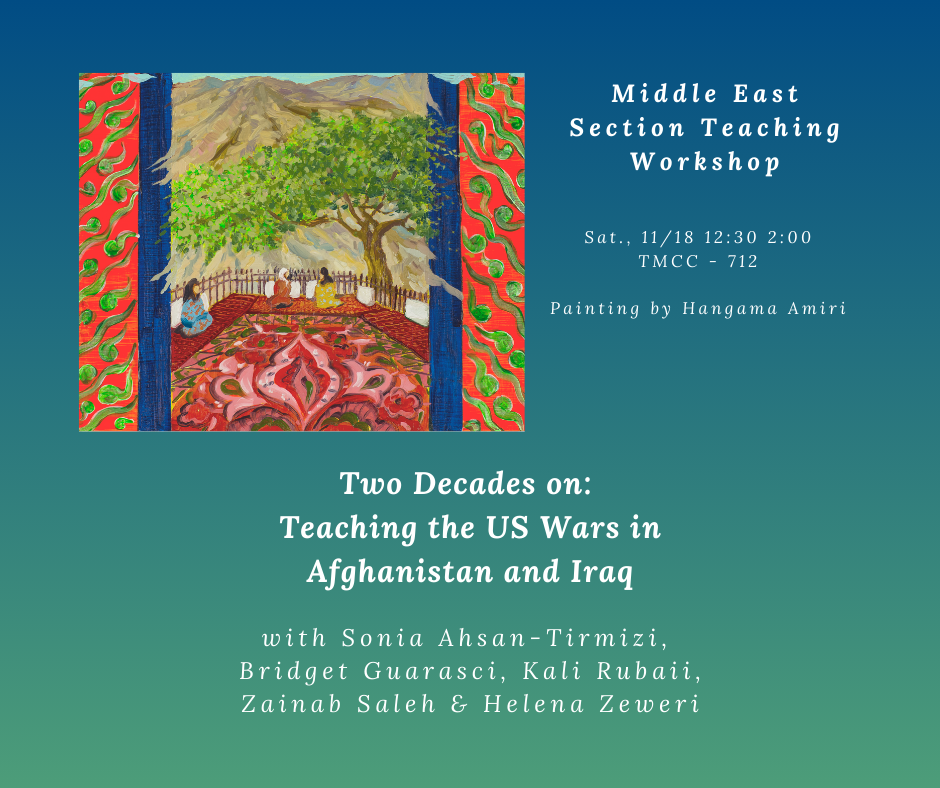The undersigned sections of the American Anthropological Association (AAA), the largest professional association of anthropologists in the world, condemn Israel’s ongoing genocidal war against the Palestinian people, most visible in its unprecedented bombardment of Gaza since October 7, 2023. The International Court of Justice describes Israeli actions in Gaza as “capable of falling within the provisions of the [Genocide] Convention”. We join ever-growing calls for an immediate and permanent ceasefire. We feel a special obligation to stand with our sister organization, Insaniyyat, the Society of Palestinian Anthropologists, which is committed to “work[ing] against ongoing and various besiegements of occupation, corruption, and statelessness, to take a measure of responsibility for knowledge produced and disseminated about and in Palestine.” We stand with academics of Gaza, who call upon us to help them rebuild their universities and to resist scholasticide.
As of June 2024, the United Nations confirmed that Israel had killed more than 37,000 Palestinians, a number that keeps rising. About 10,000 more people are assumed dead under the rubble. The Israeli Army generates targets for killing, including by AI, without regard for civilian death. Wanton use of imprecise and massive munitions in densely populated areas, including 2000-pound bombs and chemical weapons, has led to the destruction of more than 70,000 homes. Recent horrors include bombing and setting fire to tents of Palestinians taking refuge in supposed “safe zones.” 1.7 million Palestinians out of Gaza’s pre-war population of 2.2 million people – the vast majority of whom are refugees who lost their homes in the 1948 Nakba and their descendants – have been internally displaced.
These horrors demand response from all educators. United Nations experts, building on the work of legal scholar Karma Nabulsi, have defined scholasticide as the “systemic obliteration of education through the arrest, detention or killing of teachers, students and staff, and the destruction of educational infrastructure.” Israel has destroyed all major universities in Gaza and devastated over 500 primary and secondary schools. Israel has killed more than 5,479 students, 261 teachers, and 95 university professors. It has wounded at least 7819 students and 765 teachers. All kinds of knowledge infrastructure are under attack. More than 100 journalists, frontline knowledge producers upon whom the world relies, have been killed.
As noted by the Brookings Institution, there is no safe place in Gaza. Endless siege, active destruction of aid, and intense military campaigns are matched by an escalating situation of “manufactured famine” at levels unseen “since the second world war.” Catastrophic levels of hunger now face more than one million Palestinians in Gaza. Meanwhile, 45% of Gaza’s agricultural land has been destroyed, making the restoration of food security difficult or even impossible. At the same time, Gaza’s health infrastructure has been destroyed: every hospital in Gaza has been impacted and close to 500 health workers have been killed by Israel.
Impacts of this war on Palestine extend far beyond Gaza. The forced displacement of Palestinians, especially in rural communities, has drastically accelerated since October 2023. This displacement is carried out through banal bureaucratic measures and coordinated settler/ military violence alike, in areas ranging from the West Bank to the Naqab/Negev. Carceral violence has intensified, stealing lives and destroying community safety. Queer people in Palestine struggle to be recognized and remembered in the context of annihilation, and women face massive reproductive violence. Palestinian scholars and students in Israel who are critical of the genocide have faced expulsion, censorship, and arrest. In all areas of historic Palestine, institutions of learning and scholarship, social infrastructure, and life itself are under attack.
With this statement, we join calls of the Middle East Studies Association (in November and March), the National Women’s Studies Association, the Native American and Indigenous Studies Association, and the American Sociological Association for an immediate and permanent ceasefire. As subsections of an association of largely US-based anthropologists, we have a special responsibility to speak out. This aggression would be impossible without US diplomatic, economic, and military support. As subsections of an association of largely US-based American anthropologists, we condemn the funding and sanction of this genocide by the United States government.
Our discipline is deeply entangled with colonialism. Given that history, we have ethical and political commitments to amplifying the demands for freedom voiced by the historically disenfranchised peoples we work and live with, learn and come from. This ethical responsibility has long been recognized by the American Anthropological Association and its membership, including in the AAA’s 2020 Statement on Anthropology & Human Rights. It disturbs us that we must still insist that Palestinians include those to whom human rights “should be applied equally.” We agree that anthropologists have a special obligation to “inform the public in matters of human rights via specific guidelines and procedures approved by the Association.” We acknowledge the 2015 Task Force on AAA Engagement on Israel-Palestine’s Report to the Executive Board that reaffirmed “a commitment to human rights” and “a critical awareness of US complicity in the region” (viii). We recognize that on July 24 2023, 71% of those who voted in an AAA election supported an academic boycott of Israeli academic institutions because Israel “operates an apartheid regime from the Jordan River to the Mediterranean Sea, including the internationally recognized state of Israel, the Gaza Strip, and the West Bank” and because Israeli academic institutions are complicit in Israel’s oppressive regime. This resolution built on reports by Amnesty International, Human Rights Watch, B’Tselem, and the UN Special Rapporteur on Human Rights in the Occupied Palestinian Territories. Finally, we note that at the November 2023 AAA meetings in Toronto, attendees at the (non-quorum) AAA Business Meeting voted for this resolution calling for the AAA to explicitly support immediate ceasefire.
Across the United States and the world, our students have set up protest encampments to demand that their colleges and universities divest from Israeli companies as well as arms manufacturers who contribute directly and indirectly to the murder of civilians in Palestine. On several campuses, their demands for accountability from their own universities have been met with removal of financial aid, academic suspension, police brutality, and arrest. We note that Palestinian students and scholars in particular have faced surveillance, censorship, threats to employment, and violence. We support our students’ rights to speak up for these ethical demands that are in alignment with the values of our profession. We insist that their safety be ensured and their demands heard. As anthropologists and teachers, we note that a permanent ceasefire is a necessary first step towards a decolonized future that can be vibrant and safe for all.
Anthropologists have long documented the multifaceted violence and racism of settler colonialism in Palestine. As Francesca Albanese, Special Rapporteur of Human Rights in the Palestinian Territory said while presenting a report at the Human Rights Council in March of this year: “the genocide in Gaza is the most extreme stage of a long-standing settler colonial process of erasure of the native Palestinians.” Anthropologists have also shown how, over decades of dispossession and across geographies of steadfastness and dispersal, Palestinians support family and community members each day, uphold love and persistence each day, revitalize Palestinian lifeways and traditions each day, all on an unstoppable pathway towards liberation. A permanent ceasefire is a necessary first step towards a decolonized future that can be vibrant and safe for all.
Middle East Section Board
Association for Queer Anthropology Board
Society for Cultural Anthropology Board
Association of Indigenous Anthropologists Executive Board
Archaeology Division Executive Board
Association for the Anthropology of Policy Board
General Anthropology Division Board
Critical Urban Anthropology Association Board
Association of Black Anthropologists Executive Board
Society for the Anthropology of North America Executive Board
Association for Africanist Anthropology Board
Association for Political and Legal Anthropology, Board
Anthropology and Environment Society Board
This statement represents the view of the boards of the Sections listed above and should not be construed as representing the American Anthropological Association (AAA) as a whole. The AAA is a voluntary, non-profit, scholarly association with membership worldwide. It has diverse sections representing specialized interests within the field.


